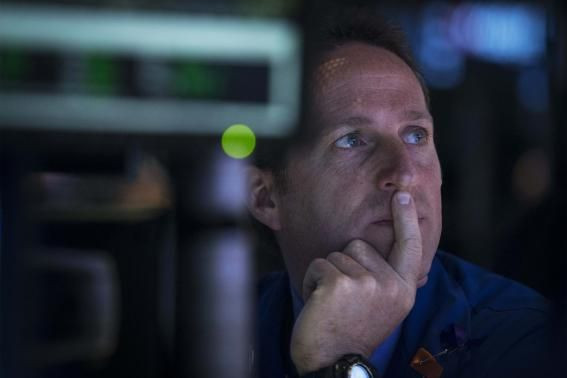Alibaba IPO: Why It Took Over Two Hours To Kick Off Trading, Straight From The Guy Who Pressed The 'Famous Done Button'

Alibaba Group Holding Limited (NYSE:BABA) shares soared over 30 percent on Friday after the e-commerce giant kicked off trading at the New York Stock Exchange. Although Jack Ma, the company’s chief executive officer, allowed eight customers to ring the opening bell at 9:30 a.m. EST, shares did not begin trading until nearly two and a half hours after U.S. markets opened, sparking plenty of questions.
Blame the NYSE’s unique price discovery process.
The night before the IPO the price of the stock is set based on investor interest. Money is then given to the company and in exchange, investors receive shares, a portion of which will be sold on the stock market the following morning. Alibaba priced shares at $68 a piece on Thursday, at the high end of its $66-$68 range, raising $21.8 billion for the company and investors ahead of trading on Friday.
The NYSE opening bell signals the start of trading for the U.S. stock market, but not for the shares of an IPO. Before the IPO begins trading, a price discovery process occurs.
Glenn Carell, director at Barclays Capital and designated market maker for the Alibaba IPO, said human involvement and transparency are "key" to the NYSE process. The designated market maker, or DMM, leads the price discovery process to find the right price at which the stock should open and begin trading, requiring close communication with key constituents in the market regarding supply and demand.
“I got here early at 6:30 this morning and the order flow on my end started coming in around 7:30 am. I could start seeing a majority retail order flow,” Carell said to IBTimes at the New York Stock Exchange. “It’s just a process of letting everyone know what’s going on. It makes it difficult because it’s the biggest IPO ever. It’s very hard at times when you’re dealing with almost a 50 million share opening.”
The DMM runs an “auction” for the stock and the process positions the DMM in the center with buyers on one side and sellers on the other. This process may use an opening range, or a price indication, which is a dollar range that gives buyers and sellers visibility into interest and an opportunity to weigh their desire to participate in early trading.
“This is a huge deal and you want to get it right. There’s no rush to open it,” Carell said. “You want to have everything aligned and you don’t want anything to go wrong. Alibaba chose the NYSE for that liquidity process, and that’s a process that takes time.”
The indication price can be updated several times through the auction process and ultimately narrowed to a single price, which is then locked in and the stock opens for trading. All morning long, Alibaba’s price range kept increasing to $82-$85, then to $88-$90. By 11:27 am EST, it had been raised yet again to $92-$93 and at 11:53 am EST, Alibaba opened for trading at $92.70. “I personally thought the range was going to be between $90 and $95, so I was pretty close,” Carell said.
There is even a “famous done button” that Carell pressed to kick off trading Alibaba stock.
“With an IPO of this magnitude, there are big numbers going in and you have to get a 'freeze' at some point, meaning it blocks everything out for a second or two,” Carell said. “You want to hit that ‘done button’ as quickly as possible because you don’t want orders queued up seeing pent-up demand. So I wanted to hit that done button right away, and that’s exactly what we did.”
Alibaba stock began trading well above its IPO price of $68, giving the company a market cap of nearly $230 billion.
“It’s basically like supply and demand where you have the buy side coming in and the sell side coming in and everyone’s order flow is coming through here,” Carell said. “You want to get to that happy medium. It’s a series of indications because when you have a lot of people that are interested in a stock, such as institutions, mutual funds and retail investors, you have to give everybody that opportunity.”
This event was the longest it has taken for an IPO to begin trading at the New York Stock Exchange. When Twitter went public in November 2013, the stock began trading around 10:46 am.
“It’s exciting,” Carell added. “I’m honored that Alibaba chose myself to represent them for the stock exchange. It’s a great win for the floor broker community, myself and Barclays.”
Alibaba shares jumped 38.07 percent on Friday to close at $93.89.
© Copyright IBTimes 2024. All rights reserved.






















